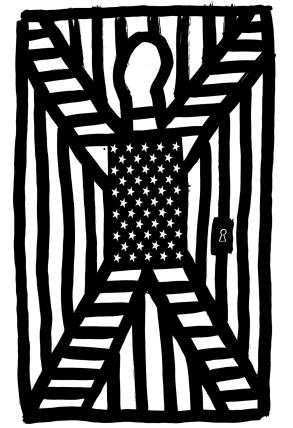In September 2019 the Freedom Education Project Puget Sound (FEPPS), a nonprofit organization designed to offer college courses to students at Washington Correction Center for Women (WCCW), was looking for instructors to teach a German 121 course in their program. We volunteered. Since the Department of Corrections was prohibited by law to offer and pay for a program of higher education for incarcerated people serving a sentence of more than seven years, FEPPS (privately funded) with students inside WCCW co-founded a college program leading to an AA-degree (Tacoma CC) and/or bachelor degree (University of Puget Sound).
Teaching at the prison was unlike any teaching either one of us had done in the past. Our course, German 121, met twice a week for two and half hours each, a schedule not ideal to start learning a foreign language and not our choice. We co-taught the class, each one in charge of one weekly meeting. In our class we tried a communicative approach with some success though our syllabus needed frequent revisions. We had to adjust to quite a different system, highly controlled and strictly supervised: Students were absent because they were transferred to a different facility or they were absent because they were penalized for infractions or the whole class was on lockdown for the same reason. They were no “office” hours to offer help to students. Once a week, though, students could join a study hall where they were able to practice conversation and could get tutorial help. In order to make up for the lack of access to contemporary German culture (no internet in classroom, restrictions on what one could bring into the classroom) we designed a cultural research paper for the students which was well received.
Our in-person teaching began January 23 and ended March 12 when due to Covid-19 all face-to-face instruction at WCCW was terminated. But unlike other institutions of learning we could not continue via Zoom. Students at WCCW are not allowed access to the internet! We therefore developed a detailed Self-Study Guide and for the remainder of the quarter students had to learn on their own. During the lockdown at WCCW, communication between us and our students turned out to be very difficult. And practicing the speaking and listening skills was no longer possible. Yet, most of the students completed the class successfully and they continued in German 122 and 123.
The emotional impact the lockdown has had for the incarcerated people is hard to imagine. Tanya Erzen, FEPPS faculty director, gives a moving account of the student’s situation: “Morale among students is low. They feel isolated and terrified. They struggle to complete work without the accountability of peers and professors. They miss being in a classroom with their fellow students because most can’t leave their units. They crave connections to the outside world. They write of loss and mourning. This pandemic underscores the stark inequities that have always existed in prison: isolation, overcrowding and a lack of health care and mental health services.”
Elisabeth Cnobloch
Manfred Bansleben
Teach a course in prison: http://fepps.org/get-involved/teach-a-course/
